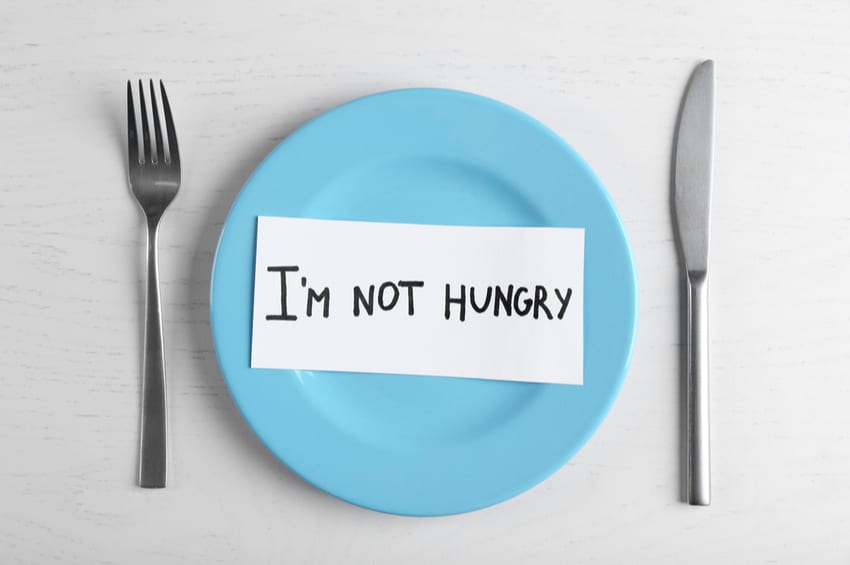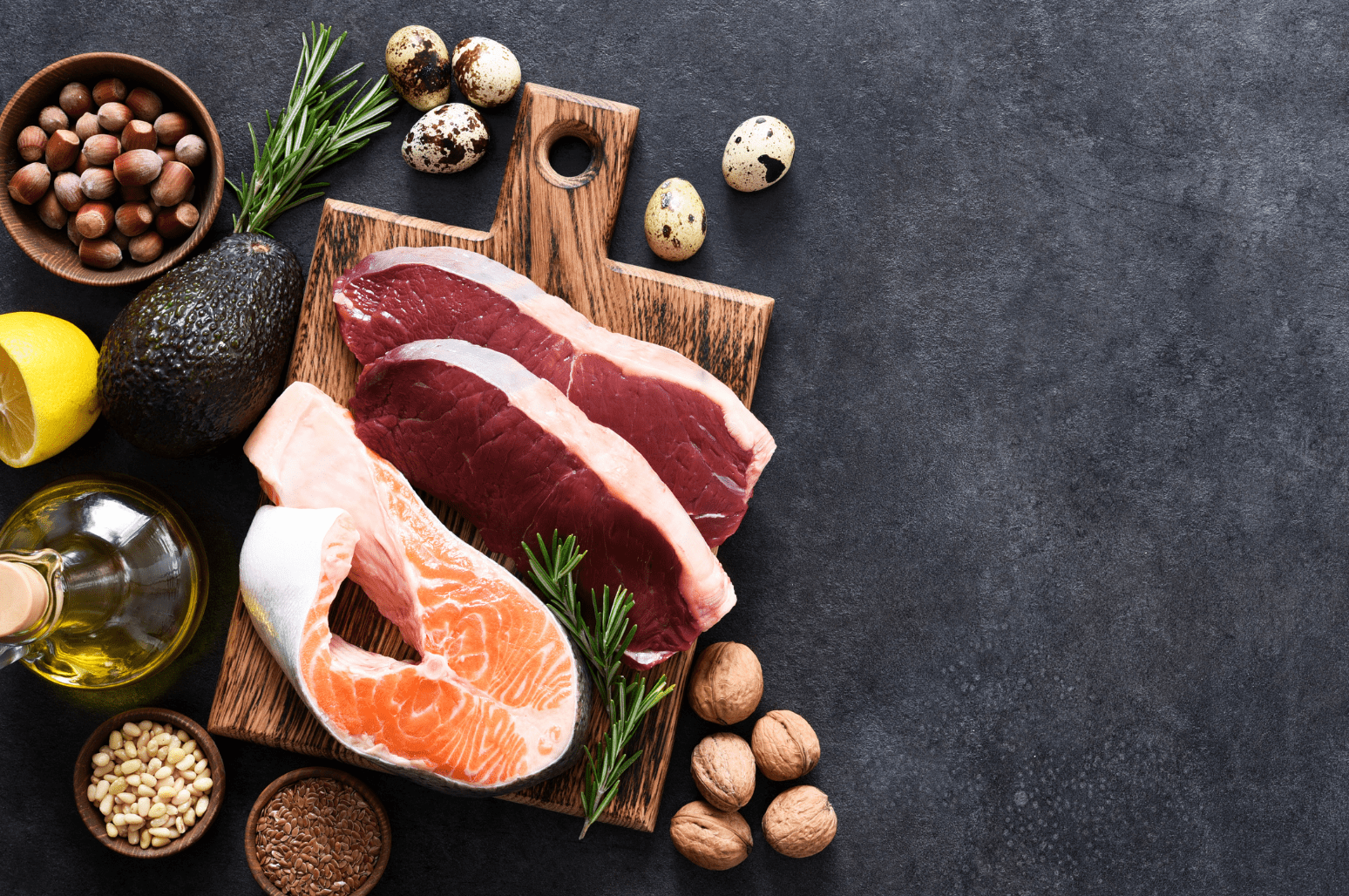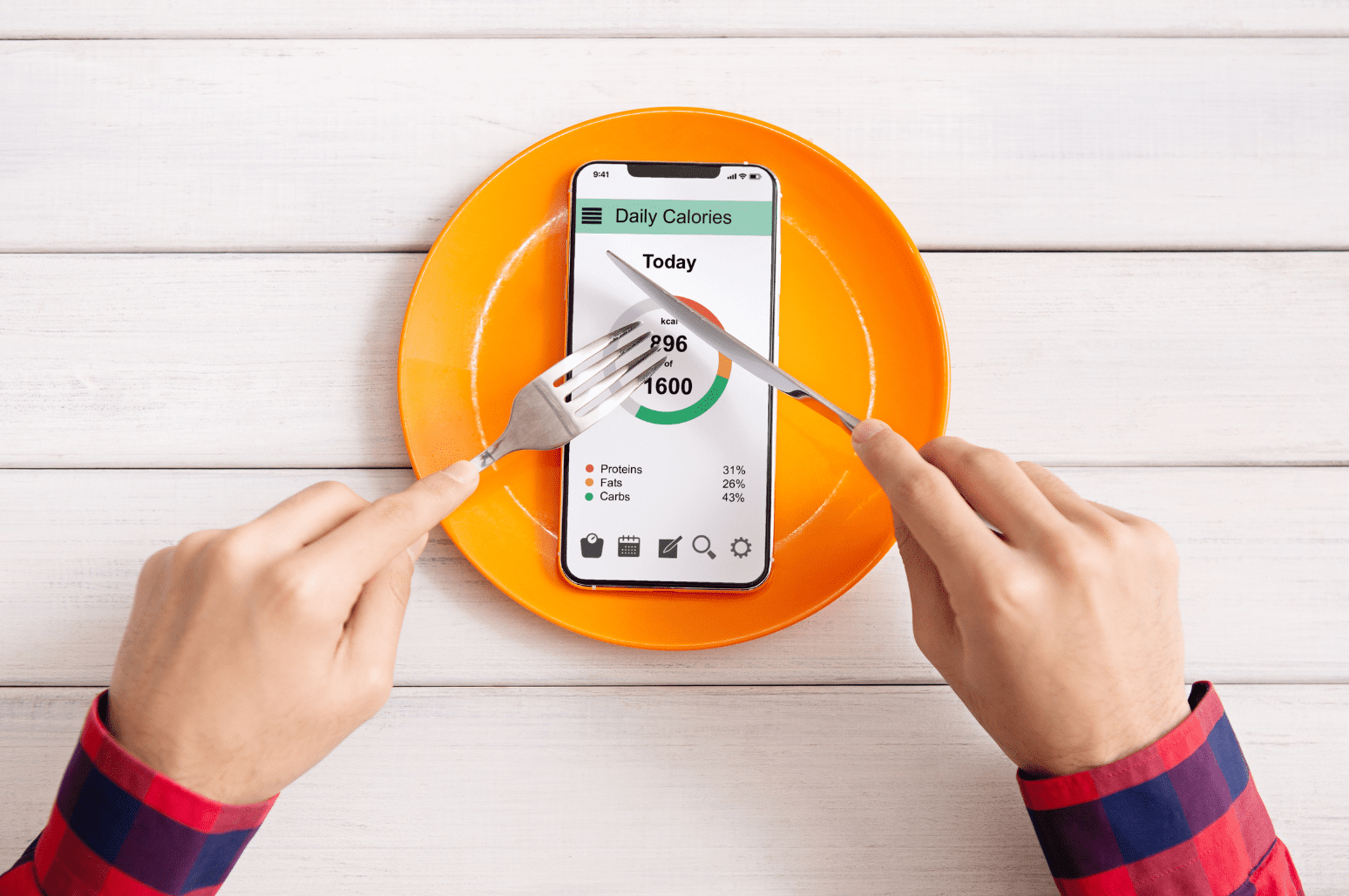No Appetite On Keto? Here’s Why You Aren’t Hungry

The “Ketogenic Diet” still has the word “diet.” Dieting is a dreaded word for most since we know the process is typically accompanied by hunger and cravings. For the traditional diet, success is dependent on an individual’s ability to manage hunger and stay on course with their diet. But, what if you have no appetite on keto?
If you have been following a ketogenic diet for a while then chances are you are experiencing a reduction in hunger. This is a fundamental feature that many ketogenic dieters experience and is one of the contributing factors to the robust weight loss that is typically demonstrated on the diet.
Dieting and Hunger
Our brain plays a major role in our perceived hunger. Our brain is responsible for taking in signals from the systems of the body to regulate our food intake by telling us when we need to eat and when need to stop eating. However, this process is often impaired in obese people which can lead to increased calorie consumption.
Hunger becomes a great limiting factor to the success of any diet. Numerous studies have demonstrated that as we decrease our caloric intake, our perceived hunger increases [1].
The same is true following weight loss. Typically, as we lower calories and subsequentially lose weight, the body responds by stimulating hunger hormones to facilitate weight gain and homeostasis [2].
Research has even found that hunger hormones can remain elevated for a year or longer following weight loss [2].
No Appetite on a Keto Diet
Typically, a ketogenic diet is accompanied by caloric restriction. Why then do long time ketogenic dieters often experience such reductions in appetite and hunger? Many studies have found that subjects who is allowed to consume as much food as they would like (ad libitum) as long as carbohydrates are restricted still voluntarily consume less food [3] [4] [5] [6]. This is because once adapted to a ketogenic diet, we experience a reduction in our perceived hunger [7].
Why does this occur? There are several theories. One popular theory is that since fat is more calorie-dense (9 calories per gram versus 4 calories for carbs and protein) compared to the other macronutrients, contributing to satiety. While this may be true, there seems to be something else going on.
Ketones and Hunger
Research is now finding that it may be ketones themselves that are affecting appetite regulation. One major mechanism lies within stabilizing blood glucose. As we enter ketosis, our blood glucose levels become much more stable, which can be a key contributor to inhibiting hunger stimulation. Another mechanism is ghrelin reduction. Being in a state of ketosis has been found to suppress the weight-loss-induced rise in ghrelin (the hormone responsible for stimulating our hunger) [8] [9].
A third mechanism involves cells in our brain known as astrocytes. Astrocytes can produce ketones just like the liver but from the fact that we eat. These ketones are then taken up by the hypothalamus to be used for energy.
 Recent research has found that when this occurs, a protein (CD36), which is responsible for controlling our food intake in the short term, is inhibited [10]. This means that the fat we eat may be interacting with our brain to control our eating.
Recent research has found that when this occurs, a protein (CD36), which is responsible for controlling our food intake in the short term, is inhibited [10]. This means that the fat we eat may be interacting with our brain to control our eating.
Conclusion
The take-home point is that a ketogenic diet can lead to changes in the body that lower hunger, thus allowing you to stick to your diet more easily. It is worth noting that these changes do not occur right away. In fact, when starting a ketogenic diet it is common to experience a drastic increase in hunger. This means that it is crucial to stick with the diet for long enough to let your body become adapted so you can see the benefits on appetite.
References
Doucet, E., Imbeault, P., St-Pierre, S., Almeras, N., Mauriege, P., Richard, D., & Tremblay, A. (2000). Appetite after weight loss by energy restriction and a low-fat diet-exercise follow-up. International journal of obesity, 24(7), 906-914.
Sumithran, P., Prendergast, L. A., Delbridge, E., Purcell, K., Shulkes, A., Kriketos, A., & Proietto, J. (2011). Long-term persistence of hormonal adaptations to weight loss. New England Journal of Medicine, 365(17), 1597-1604.
Johnstone, A. M., Horgan, G. W., Murison, S. D., Bremner, D. M., & Lobley, G. E. (2008). Effects of a high-protein ketogenic diet on hunger, appetite, and weight loss in obese men feeding ad libitum. The American journal of clinical nutrition, 87(1), 44-55.
Yancy, W. S., Olsen, M. K., Guyton, J. R., Bakst, R. P., & Westman, E. C. (2004). A low-carbohydrate, ketogenic diet versus a low-fat diet to treat obesity and hyperlipidemiaA randomized, controlled trial. Annals of internal medicine, 140(10), 769-777.
Brehm, B. J., Seeley, R. J., Daniels, S. R., & D’alessio, D. A. (2003). A randomized trial comparing a very low carbohydrate diet and a calorie-restricted low fat diet on body weight and cardiovascular risk factors in healthy women. The Journal of Clinical Endocrinology & Metabolism, 88(4), 1617-1623.
Boden, G., Sargrad, K., Homko, C., Mozzoli, M., & Stein, T. P. (2005). Effect of a low-carbohydrate diet on appetite, blood glucose levels, and insulin resistance in obese patients with type 2 diabetes. Annals of internal medicine, 142(6), 403-411.
McClernon, F. J., Yancy, W. S., Eberstein, J. A., Atkins, R. C., & Westman, E. C. (2007). The Effects of a Low-Carbohydrate Ketogenic Diet and a Low?Fat Diet on Mood, Hunger, and Other Self-Reported Symptoms. Obesity, 15(1), 182-182.
Sumithran, P., Prendergast, L. A., Delbridge, E., Purcell, K., Shulkes, A., Kriketos, A., & Proietto, J. (2013). Ketosis and appetite-mediating nutrients and hormones after weight loss. European journal of clinical nutrition, 67(7), 759-764.
Ratliff, J., Mutungi, G., Puglisi, M. J., Volek, J. S., & Fernandez, M. L. (2009). Carbohydrate restriction (with or without additional dietary cholesterol provided by eggs) reduces insulin resistance and plasma leptin without modifying appetite hormones in adult men. Nutrition research, 29(4), 262-268.
Le Foll, C., & Levin, B. E. (2016). Fatty acid-induced astrocyte ketone production and the control of food intake. American Journal of Physiology-Regulatory, Integrative and Comparative Physiology, 310(11), R1186-R1192.










Interesting…I’ve been on keto for several months at 1st….one meal a day…would be hungry not a lot…but fast forward few months…usually drink a protein drink mid day…then my meal at 5pm….I’ve discovered I’m not hungry..I reduced salad…and vegetables…did some meat..but could not finish it..so went to bacon..eggs..ok…but now..I’m just not hungry..I got lots of energy and sleep ok…..I’m 5…9…and weigh 158….I do a beef protein shake..with electorate and whole lemon and little turmic…I feel fine….just odd..
yep same here no hunger no appetite nothing…miximg things in mixer that works